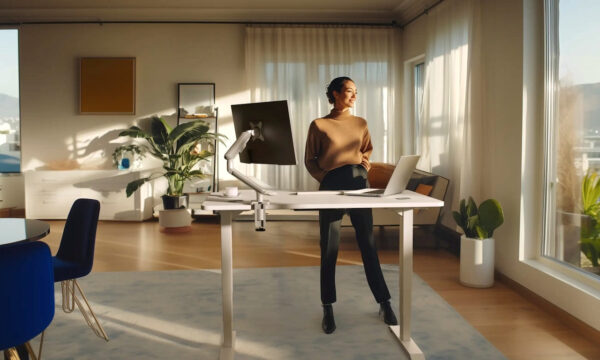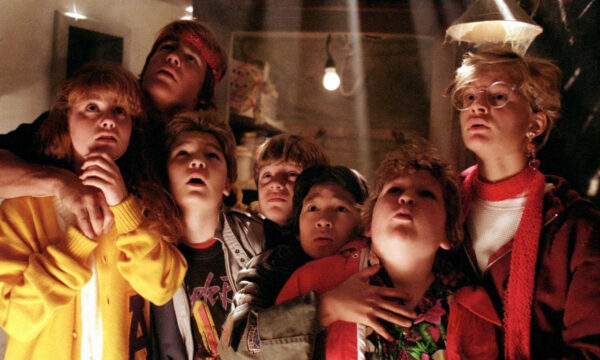Does coffee shop culture really have a place in business?

As Brits gulp down 95 million cups of coffee a day, and express an increasing preference for remote working, it’s no surprise the line between office and coffee shop is blurring. As well as becoming social hubs expected to outnumber pubs by 2030, coffee shops have become hotbeds of business activity.
Advancements in remote network access and cloud storage mean employees no longer require dedicated office spaces to access their work. Consequently, more and more workers head to coffee shops, or ‘coffices’, for the promise of free wi-fi, a flexible working environment, and gourmet coffee. In fact, up to 80% of workers have chosen a coffee shop over their office, whilst 13% do so every single day.
The increasing popularity of remote working means this figure is likely to grow, but could the “cappuccino commerce” trend actually be hindering companies more than it helps?
Employees are stimulated by the coffee shop environment
While you’d assume the noisy coffice environment would inhibit productivity, research suggests the opposite. According to a study published in the Journal of Consumer Research, people are most creative when exposed to noise levels of around 70 decibels, which is roughly the same level as the background noise of a coffee shop. Individuals in this environment were much more productive than those working in both quieter and louder settings. Working remotely in a cafe also means that employees won’t be sidetracked by talking to colleagues, as chatty co-workers cited as one of the biggest distractions in an office environment.
Encouraging coffee shop culture as part of a broader remote working strategy can also improve job satisfaction. Studies have found that 91% of HR professionals working remotely – whether at a coffee shop or another location – are more engaged and satisfied at work as they are given the freedom to structure their days. Having this arrangement in place can also make a company more attractive to prospective employees. Research has found that 90% of workers want more flexibility at work, while 37% would leave their current position for one where they could choose their working environment.
Embracing cappuccino commerce can help cut costs
As noted by workspace providers Landmark, if fewer employees are consistently in the office, employers can think about streamlining the work environment and using the available space in the most cost-effective way possible. Businesses can opt for a smaller office, ultimately cutting costs on rent payments and operation costs. Research from Global Workplace Analytics shows just how sensible a decision this can be, finding that smaller offices could save a business over £8,000 per half-time remote worker a year.
Employees can also reap the financial rewards of a coffee shop culture, as they have the choice of working in their local cafe instead of spending money – and time – commuting all the way to an office. The aforementioned research also found that full-time remote workers can save more than £3,000 a year by not commuting to an office, while part-time remote workers save up to £2,000.
Remote working can hinder client and team communication
It’s not all good news. Working from coffee shops can negatively impact how businesses court clients. A study conducted by The Secret Killers of Business Success found that 66% of people are unwilling to give a company a second chance after a bad first impression, and a huge part of this comes down to where businesses physically meet their clients. A resounding 75% of those surveyed said that meeting in a professional environment had the most positive impact, with almost half (47%) admitting that meeting in a café created a bad impression.
This can also inhibit business performance, by forcing employees to communicate with one another virtually rather than face-to-face. According to research by MIT’s Human Dynamics Lab that tracked key performance drivers across businesses, the most effective form of communication is done in person. In fact, the study showed that 35% of the variation in a team’s performance came down to how many times they spoke face-to-face. As such, preventing employees from doing so could be detrimental to their level of output.
Public wi-fi can put company data at risk
Using coffee shop wi-fi can render sensitive company data vulnerable to cyber attacks. The dangers of public networks have been well documented and there are various ways cybercriminals can prey on those connected to coffee shop wi-fi, gaining access to private information. These include man-in-the-middle attacks, where data is intercepted by nefarious third parties, and distribution of malware through an insecure network.
In fact, a report by iPass revealed that coffee shops are the most dangerous wi-fi venue of all, ahead of places like hotels, airports, and exhibition centres. The president of engineering at iPass, Raghu Konka, commented that: “Cafes invariably have lax security standards, meaning that anyone using these networks will be potentially vulnerable.” The ramifications of this are potentially disastrous, so businesses should be vigilant of the risks surrounding coffee shop culture.
The happy medium between traditional offices and coffee shops
Many companies are abandoning coffee shops and offices altogether. Instead, they are looking toward coworking spaces, with a huge 200% growth in the number of coworking spaces being built between 2013 and 2018. Here, different businesses and individuals share the same workspace, offering the best of both worlds between traditional offices and coffee shops.
While they are essentially shared working spaces, these usually feature both social and private zones. The social zones – which typically have amenities like shared tables, kitchens, and high-quality coffee – bear resemblance to coffee shops, meaning workers can benefit from the productivity-enhancing background noise and liquid energy. Private zones are ideal for those that prefer to work alone in quiet conditions. What’s more, unlike coffee shops, coworking spaces project a professional image to clients and typically provide private wi-fi networks, thereby keeping company data safe.
All in all, it seems that coffee shop culture does have a place in business. Working directly from a coffee shop may not always be best practice, but a relaxed environment free from the shackles of a desk looks here to stay.
The editorial unit

























Facebook
Twitter
Instagram
YouTube
RSS